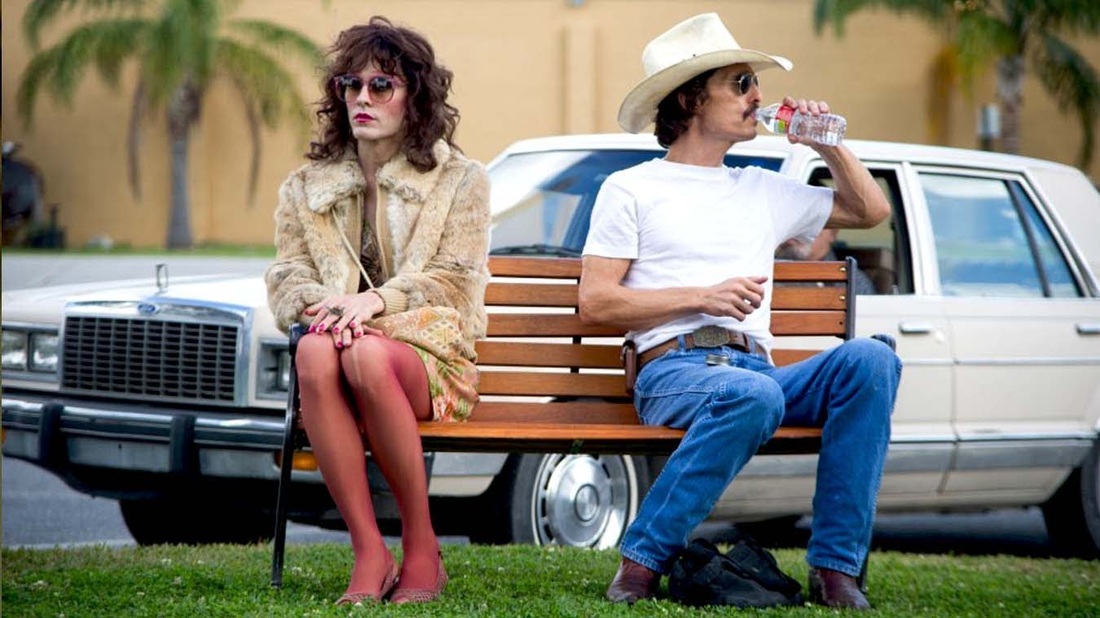Another resounding issue that Dallas Buyers Club seeks to address becomes evident when Ron is initially given his AIDS diagnosis and told that he has thirty days to live. While Ron certainly demonstrates his stubborn independence and strong will to survive in this moment, any concerns regarding the status of his life are quickly given less precedence than his concerns that the doctors would dare to question his possible engagement in homosexual behavior. Through his emphatic defense against this postulation, Ron viciously conveys his bigoted, homophobic beliefs to such an extent, that he completely denies the possibility of his AIDS diagnosis holding truth. However, in a powerful scene where Ron recalls having unprotected sex with an intravenous drug-using prostitute, he finally comes to terms with the fact that heterosexuals can get AIDS as well.
Although Ron makes this connection, many of his old friends still embrace the belief that AIDS is solely a homosexual disease, which causes him to be ostracized from the group and reinforces the notion of Ron independently facing his continued struggle with AIDS; a struggle that incites Ron’s relentless pursuit of a cure. This pursuit quickly sends Ron into the black market, where he acquires large doses of AZT from a crooked hospital porter. However, when this supply runs out and Ron realizes that the medicine was actually causing more problems than it was solving, Ron is faced with a near-death experience.
While hospitalized, Ron ends up meeting Rayon (Jared Leto), a drug addict and transvestite whom Ron initially shows nothing but hostility towards. However, after traveling to Mexico and discovering a much more effective medication, Ron smuggles large amounts of the drug over the border and reluctantly sets up a business with Rayon, knowing that his associate will bring in many more clients. Through this medical co-op that gets non-approved medicine into the hands of those suffering from AIDS, Ron slowly experiences a homophobic awakening and learns to appreciate the unique personality of Rayon. Ron’s transformation is perhaps best noted in one the film’s most dramatic scenes, where Ron forces his old homophobic friend, Tucker, to shake Rayon’s hand.
Beyond the themes previously addressed, Dallas Buyers Club really succeeds in capturing the extent of the AIDS epidemic, as well as the government’s greater emphasis on following procedure than showing compassion. By including shots of long lines stretching outside the door to Ron’s club headquarters, as well as shots of governmental figures breaking into the headquarters to confiscate various drugs, we are left with a vivid image of how difficult it was for those infected with AIDS to receive adequate medication around the mid-1980s. Couple this with the poisonous social climate of the times, and Dallas Buyers Club truly succeeds in allowing its viewers to sympathize with the plights encountered by those diagnosed with AIDS. Backed by fantastic, Oscar-winning performances from both Matthew McConaughey and Jared Leto, Dallas Buyers Club functions as a compelling tale about men who dared to live and work around the system to provide more adequate medication to patients in need of assistance.


 RSS Feed
RSS Feed
